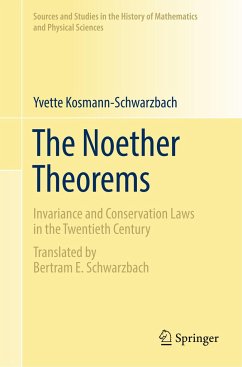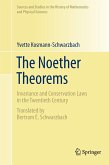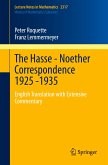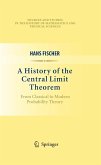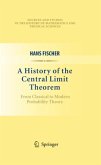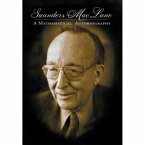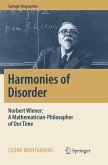In 1915 and 1916 Emmy Noether was asked by Felix Klein and David Hilbert to assist them in understanding issues involved in any attempt to formulate a general theory of relativity, in particular the new ideas of Einstein. She was consulted particularly over the difficult issue of the form a law of conservation of energy could take in the new theory, and she succeeded brilliantly, finding two deep theorems.
But between 1916 and 1950, the theorem was poorly understood and Noether's name disappeared almost entirely. People like Klein and Einstein did little more then mention her name in the various popular or historical accounts they wrote. Worse, earlier attempts which had been eclipsed by Noether's achievements were remembered, and sometimes figure in quick historical accounts of the time.
This book carries a translation of Noether's original paper into English, and then describes the strange history of its reception and the responses to her work. Ultimately the theorems became decisive in a shift from basing fundamental physics on conservations laws to basing it on symmetries, or at the very least, in thoroughly explaining the connection between these two families of ideas. The real significance of this book is that it shows very clearly how long it took before mathematicians and physicists began to recognize the seminal importance of Noether's results. This book is thoroughly researched and provides careful documentation of the textbook literature. Kosmann-Schwarzbach has thus thrown considerable light on this slow dance in which the mathematical tools necessary to study symmetry properties and conservation laws were apparently provided long before the orchestra arrives and the party begins.
But between 1916 and 1950, the theorem was poorly understood and Noether's name disappeared almost entirely. People like Klein and Einstein did little more then mention her name in the various popular or historical accounts they wrote. Worse, earlier attempts which had been eclipsed by Noether's achievements were remembered, and sometimes figure in quick historical accounts of the time.
This book carries a translation of Noether's original paper into English, and then describes the strange history of its reception and the responses to her work. Ultimately the theorems became decisive in a shift from basing fundamental physics on conservations laws to basing it on symmetries, or at the very least, in thoroughly explaining the connection between these two families of ideas. The real significance of this book is that it shows very clearly how long it took before mathematicians and physicists began to recognize the seminal importance of Noether's results. This book is thoroughly researched and provides careful documentation of the textbook literature. Kosmann-Schwarzbach has thus thrown considerable light on this slow dance in which the mathematical tools necessary to study symmetry properties and conservation laws were apparently provided long before the orchestra arrives and the party begins.
From the reviews:
"...to sum up The Noether Theorems in its own terms, it is an important study of the work of Emmy Noether, the evolution of ideas about conservation and symmetry, and the extraordinatry fertility of mathematical language."
- Robyn Arianrhod, Notices of the AMS, August 2013
"All in all, Kosmann-Schwarzbach's book is a valuable and important contribution to the historical and mathematical literature-well worth owning to savor and reference... Kosmann-Schwarzbach's masterful historical and mathematical study is a most welcome addition to the literature, furnishing new insight into the sociology and curious history of twentieth century science and mathematics, supplying a deeper appreciation of Noether's profound genius, and providing an invaluable resource for clearing up misconceptions and misreadings of Noether's wonderful theorems."
-Peter J. Olver, Bull. Amer. Math. Soc., Vol. 50(1), 2013
"The main part of Kosmann-Schwarzbach's book, which is the improved English version of the second French edition of 2006... is devoted to a subtle analysis of the multi-faceted reasons why Noether's work was received rather selectively and slowly through the course of the 20th century...As a noted differential geometer and as a woman, the author, Yvette Kosmann-Schwarzbach, who has been working on Emmy Noether's contribution for decades, is ideally suited to give a very nuanced analysis. In particular, the Kosmann-Schwarzbach book, which is both scientifically and historically most competent, traces 'genuine generalizations' of Noether's work in recent decades. This is a major event in the historiography of mathematics and physics of the 20th century."
-R. Siegmund-Schultze, Zentralblatt
"This book is positively brimming with the kind of arcane that appeals irresistibly to both historians of mathematics (and theoretical physics) and mathematicians proper whohave parochial interest in the lives and adventures of titans of the past...Kosmann-Schwarzbach's 'The Noether Theorems' is a wonderful scholarly contribution to the history of modern mathematics as it interacts with modern physics, and a very evocative account of the roles played by a number of major figures in early twentieth century German science."
-Michael Berg, MAA Reviews
"The book under review does a splendid job in collecting and carefully presenting a huge range of material on the strange story of the belated reception of Emmy Noether's symmetry investigations in variational problems and their further development...this book presents a highly interesting case study of an important mathematical development of the last century."
- Erhard Scholz, EMS Newsletter December 2011
"This book by Kosmann-Schwarzbach (École Polytechnique, France) focuses on two theorems and their converses as published by Emmy Noether in 1918. These results established a link between variational problem conservation laws and symmetries. The book is divided into two parts. ... includes necessary background material as well as a discussion of extensions to Noether's paper in the last 40 years. ... concludes with a list of about 400 references. Summing Up: Recommended. Graduate students, researchers/faculty, and professionals."
-D. P. Turner, Choice, Vol. 49 (1), September, 2011
"Although a plenty of articles and books on Noether's life and work have been published, curiously nowhere this fundamental paper found the appropriate attention. ... With this monograph, which has been published originally in French in 2006, Kosmann-Schwarzbach fills that gap. After the translation of Noether's paper she explains thoroughly its contents. Then a detailed analysis of the inception and reception of Noether's ideas follows. ... This is history of mathematics at its very best!"
- G.Kowol, Monatshefte für Mathematik, Vol. 165 (1), January, 2012
"The author analyzes the most modern reformulations of Noether's theorems and their generalization to a great number of problems. The book includes appendices which contain diverse correspondence between Noether and other scientists such as Klein, Einstein and Pauli, and an extensive and fairly complete list of bibliographic references. ... this is a very good work on the Noether theorems and their influence in physics and mathematics, both from a historical and an expository point of view."
-Narciso Román-Roy, Mathematical Reviews, Issue 2012 e
"...to sum up The Noether Theorems in its own terms, it is an important study of the work of Emmy Noether, the evolution of ideas about conservation and symmetry, and the extraordinatry fertility of mathematical language."
- Robyn Arianrhod, Notices of the AMS, August 2013
"All in all, Kosmann-Schwarzbach's book is a valuable and important contribution to the historical and mathematical literature-well worth owning to savor and reference... Kosmann-Schwarzbach's masterful historical and mathematical study is a most welcome addition to the literature, furnishing new insight into the sociology and curious history of twentieth century science and mathematics, supplying a deeper appreciation of Noether's profound genius, and providing an invaluable resource for clearing up misconceptions and misreadings of Noether's wonderful theorems."
-Peter J. Olver, Bull. Amer. Math. Soc., Vol. 50(1), 2013
"The main part of Kosmann-Schwarzbach's book, which is the improved English version of the second French edition of 2006... is devoted to a subtle analysis of the multi-faceted reasons why Noether's work was received rather selectively and slowly through the course of the 20th century...As a noted differential geometer and as a woman, the author, Yvette Kosmann-Schwarzbach, who has been working on Emmy Noether's contribution for decades, is ideally suited to give a very nuanced analysis. In particular, the Kosmann-Schwarzbach book, which is both scientifically and historically most competent, traces 'genuine generalizations' of Noether's work in recent decades. This is a major event in the historiography of mathematics and physics of the 20th century."
-R. Siegmund-Schultze, Zentralblatt
"This book is positively brimming with the kind of arcane that appeals irresistibly to both historians of mathematics (and theoretical physics) and mathematicians proper whohave parochial interest in the lives and adventures of titans of the past...Kosmann-Schwarzbach's 'The Noether Theorems' is a wonderful scholarly contribution to the history of modern mathematics as it interacts with modern physics, and a very evocative account of the roles played by a number of major figures in early twentieth century German science."
-Michael Berg, MAA Reviews
"The book under review does a splendid job in collecting and carefully presenting a huge range of material on the strange story of the belated reception of Emmy Noether's symmetry investigations in variational problems and their further development...this book presents a highly interesting case study of an important mathematical development of the last century."
- Erhard Scholz, EMS Newsletter December 2011
"This book by Kosmann-Schwarzbach (École Polytechnique, France) focuses on two theorems and their converses as published by Emmy Noether in 1918. These results established a link between variational problem conservation laws and symmetries. The book is divided into two parts. ... includes necessary background material as well as a discussion of extensions to Noether's paper in the last 40 years. ... concludes with a list of about 400 references. Summing Up: Recommended. Graduate students, researchers/faculty, and professionals."
-D. P. Turner, Choice, Vol. 49 (1), September, 2011
"Although a plenty of articles and books on Noether's life and work have been published, curiously nowhere this fundamental paper found the appropriate attention. ... With this monograph, which has been published originally in French in 2006, Kosmann-Schwarzbach fills that gap. After the translation of Noether's paper she explains thoroughly its contents. Then a detailed analysis of the inception and reception of Noether's ideas follows. ... This is history of mathematics at its very best!"
- G.Kowol, Monatshefte für Mathematik, Vol. 165 (1), January, 2012
"The author analyzes the most modern reformulations of Noether's theorems and their generalization to a great number of problems. The book includes appendices which contain diverse correspondence between Noether and other scientists such as Klein, Einstein and Pauli, and an extensive and fairly complete list of bibliographic references. ... this is a very good work on the Noether theorems and their influence in physics and mathematics, both from a historical and an expository point of view."
-Narciso Román-Roy, Mathematical Reviews, Issue 2012 e

